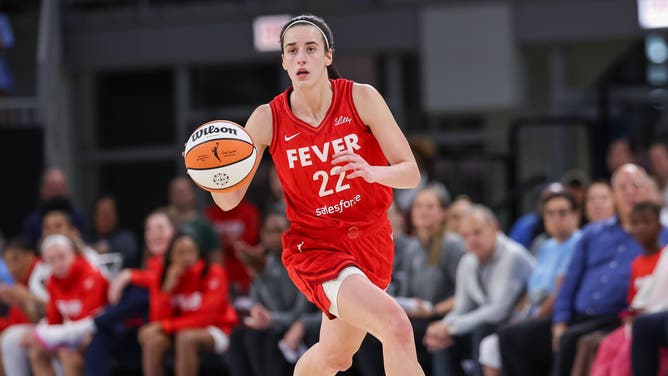Jemele Hill Says It's 'Irresponsible' For Journalists To Tell Truth About WNBA Ratings Without Caitlin Clark
Jemele Hill says it is "irresponsible" for journalists to say that the ratings for the WNBA playoffs have declined significantly since Caitlin Clark was eliminated.
In other words, Hill says it is irresponsible for journalists to tell the truth.
"I keep seeing irresponsible headlines claiming the WNBA playoffs are down because of no Caitlin Clark," Hill posted on X Thursday. "Would the ratings be higher if she were in it? Of course. But guess what, a Finals would rate higher if it were Lebron vs Steph. Or, if big market teams were in the mix. So what?"
The analogy to the NBA doesn't hold up.
Clark's impact on the ratings was a national story all season. First, Clark led the WNBA to record viewership. Second, Clark's detractors have spent the past year discounting her influence on viewership – including her wannabe rival Angel Reese.
Further, Clark has a far greater effect on the ratings for the WNBA than LeBron James or Steph Curry has on the NBA.
This season, games in which Clark played averaged 1.178 million viewers, while games without her averaged just 394,000 viewers. That is a difference of 199 percent.
Sunday's Aces-Liberty game, a championship rematch from last season, was down nearly 50 percent from Clark's playoff debut last Sunday.
LeBron and Curry are draws. But they are nowhere near worth a 199 percent difference in viewership. In fact, no player in American team sports is more crucial to their league's ratings than Clark is; not even Patrick Mahomes or Travis Kelce.

CHICAGO - Caitlin Clark of the Indiana Fever brings the ball up court during the game against the Chicago Sky at Wintrust Arena on August 30, 2024. (Photo by Michael Hickey/Getty Images)
So, no, reporting the truth about WNBA ratings post-Clark is not "irresponsible."
The WNBA ratings are a story. People are interested. Journalists cover what stories people are interested in reading.
And Jemele Hill knows that.
Before assuming the role of Joy Reid junior, Hill was a journalist – a talented one, even. Now, she's a race-baiting hack trying to suck up as much of the white-guilt media money as she can.
Hill understands that pretending to be outraged over the coverage of WNBA viewership could buy her more time. If nothing else, her posts about Clark will keep Hill in the good graces of Black Twitter, which is really important to the grift.
For example, Hill really declared that not a single person online trolling Clark is black. How would she know that? How would anyone know that? How is that even possible?
Spoiler: It's not.
A quick X search will find many posts from accounts with black avatars trolling Caitlin Clark, calling her a "white bitch."
Is that racist, or nah?
Unfortunately, Hill's comments about the ratings could still have an impact. Sports writers will see her tweets and know that any further coverage of the viewership may result in accusations of, wait for it, racism.
The truth has consequences.